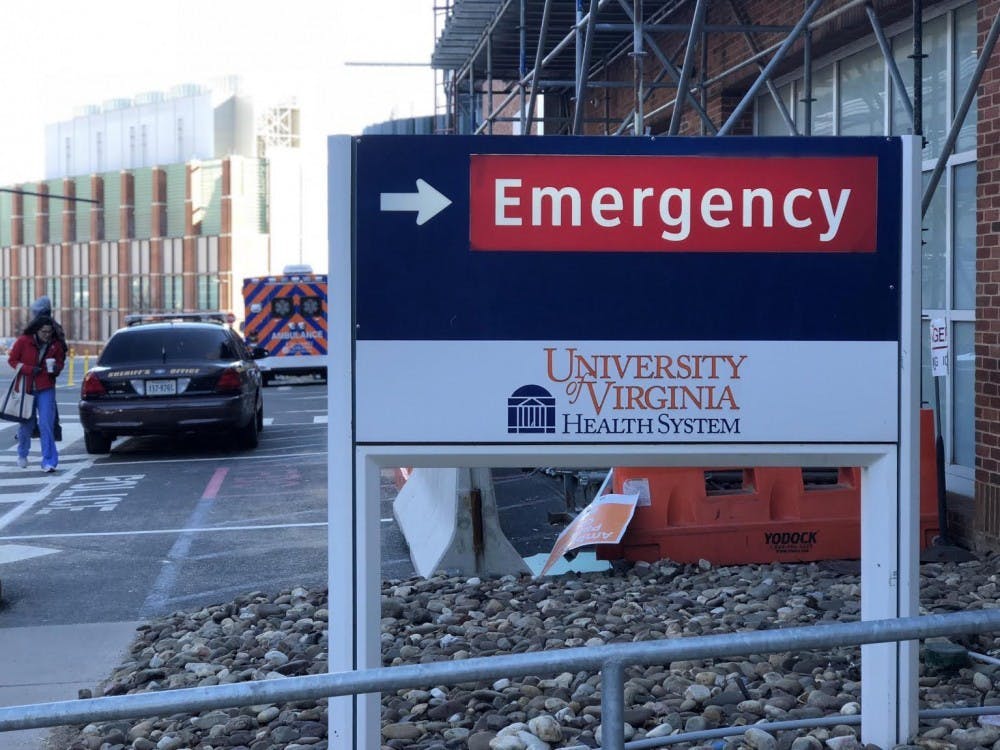A patient of the University Health System sued the Health System CEO and several medical practitioners Tuesday in federal court for alleged violations of due process, denial of informed consent and violations of the Fourth and Fourteenth Amendments.
The suit also alleges the medical team committed gross negligence, false imprisonment and assault and battery against the patient, who is referred to in the suit under the pseudonym “Jane Doe.”
In the complaint, Doe alleges the doctors and nurses forcefully took blood and urine samples when brought to the hospital for a suicide attempt in January, even after she “strenuously” declined treatment. Doe is currently diagnosed with post traumatic stress disorder and has been involved in treatment, the court documents say, but the events at the hospital “severely exacerbated” her condition.
For sedation, Doe alleges she was given several medications against her will, including zyprex, benadryl and ativan. According to Doe, when the medical team determined she had not been fully sedated, they administered ketamine, a psychoactive anesthetic. Through the process, Doe alleges she was not told what drugs she would be given, nor was she advised on effects of the medications.
Beyond the unsanctioned use of drugs, Doe alleges she was physically violated. When Doe did not agree to willingly offer a urine sample, a Health System physician ordered that the nurse could use a urinary catheter — a small tube inserted into the bladder of a patient to forcibly extract urine — to obtain the sample. The court filing also indicates Doe was constrained at several points throughout the process.
In an interview with The Cavalier Daily, Doe’s attorney, Jeff Fogel, said that if the Health System alleges they were following policy, then they are likely conducting similar procedures with other patients.
“My client filed aggrievance within the Health System, and all they said if we viewed all the records, everything was according to policy,” Fogel said. “Which would make you think that anybody who refuses treatments that they want to treat, they would forcibly treat.”
Fogel also noted that the issue of forcing someone to receive medical treatment came up to the U.S. Supreme Court in the 1990 case Cruzan v. Director, Missouri Department of Health, in which the court ruled that competent individuals have the right to refuse medical treatment under the Due Process Clause of the Fourteenth Amendment.
Under the Due Process Clause, a person cannot be denied their right to life, liberty or property. In Cruzan and other cases, the Supreme Court has held that competent people have a liberty interest in refusing medical care.
“The medical profession should be well-versed in this question that has been decided by the Supreme Court,” Fogel said.
Doe is seeking compensatory damages for the events described in the lawsuit, but is also seeking several court orders aimed at Health System CEO Pamela Sutton-Wallace to change Health System policy — that physicians and medical care providers inform patients of medications being administered; that medical care providers allow patients to refuse treatment; and that medical care providers may not use physical restraints to administer unauthorized treatments.
Health System Public Information Officer Eric Swensen declined to comment on pending litigation, as a matter of practice.
If the case goes to trial, a jury will be seated in the U.S. District Court for the District of Western Virginia.







